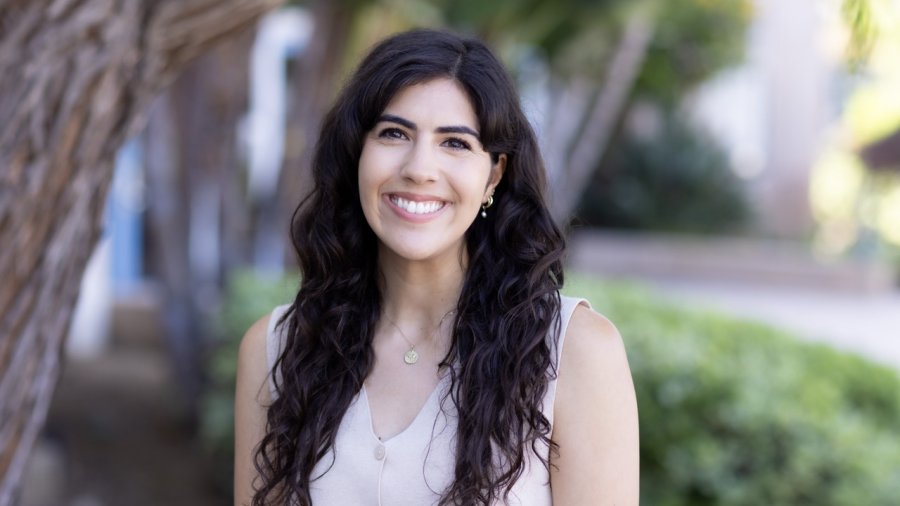
As part of the new Stepped Care Model, the Counseling Center offers several groups for students to seek support in a variety of areas, including men’s mental health, grief, anxiety, racial diversity and body image.
The newest addition, a body image support group titled “Beyond The Mirror,” highlights students’ relationships with their bodies and helps guide them toward body acceptance and self-compassion.
The Point conducted an email interview with Melinda Olson, a licensed mental health counselor and leader of “Beyond The Mirror,” to learn about why this space was created and how it can help students develop a healthier relationship with their bodies.
The Point: What kind of topics are covered in your group? Why choose these topics in particular?
Melinda Olson: Some of the topics covered in this body image group include exploring the different personal influences that have reinforced students’ negative body image (i.e., family, peers, relationships, social media). We will also be exploring their relationship to their bodies and how to reconnect to it in a healthy way, reframing maladaptive/critical self-talk and learning to use more neutral body talk, and developing acceptance to their bodies through processing and letter writing. Embedded in these topics are strategies to cultivate healthy eating habits which our dietician, Carrie Gunn, will help to educate on.
We have recognized that body image is a prevalent issue many people and students experience that creates a lot of distress. Our hope is to build insight and awareness and support students in developing greater self-compassion to their bodies in a safe space so they can hopefully feel more confident and empowered.
TP: What inspired the creation of “Beyond The Mirror”?
MO: Over the last year or so that I have been working with students here, it became really apparent that many students have significant body dissatisfaction and experience distress around their bodies. I shared this with my team and advocated for a group that can support students in developing tools to manage their negative body image. I have become more passionate about this issue and want to help address this.
TP: What kind of benefits might this space offer for students?
MO: Some of the positive benefits this group might offer to students are developing a deeper understanding and reflection around their body image, greater body acceptance through reframing critical self-talk, learning how to reconnect to their bodies, healthy eating habits and feeling less isolated by being with others who share similar struggles with body dissatisfaction.
TP: What are you hoping will be the outcome of your group?
MO: My hope is that this group offers a safe space for students to process more openly about their challenges with body image and to feel more seen. Our goal is to help them come away with understanding more about what body image means, deeper reflection and tools to cultivate more self-compassion.
TP: Do you believe that this group is important to implement for just the PLNU population specifically, or is it a tool that is important for every university?
MO: Given how prevalent body dissatisfaction is, I think all universities should work to address this concern and offer tools to their students to manage negative body image. Many people fall on different ends of the spectrum of body image – whether it is body acceptance, body preoccupation, body hate, etc. – it is an important topic that should be talked about more.
TP: What advice would you give to a student who is struggling to love their body? What are some resources someone can look into to seek support?
MO: Some feedback and recommendations that I would give to a student struggling with negative body image is to first identify what your standard of beauty is and how this came to be. Are these standards realistic or unrealistic? It is helpful to reflect on the different influences throughout your life, from childhood to the present, that have contributed to your view of your body. I would also encourage you to seek support from those around you, set healthy boundaries (i.e., redirecting conversations around body talk, limit social media use if this has become unhealthy, etc.), identify your critical self-talk and learn to engage in body neutrality (i.e., focus on the function of your body and what it allows you to do).
Some helpful books I’d encourage students to read are: “Perfectly Imperfect: Compassionate Strategies to Cultivate a Positive Body Image” by Amy Harman, a licensed marriage and family therapist, and “Befriending Your Body” by Anna Saffi. Another piece of advice I would give to students is that if you are noticing persistent distress around body image and it is beginning to affect different areas of your life, leading you to become avoidant, etc., it is important to seek professional help.
“Beyond The Mirror” is set to take place on Thursdays from 2:30-3:30 p.m. in the Counseling Center Conference Room. It is a four-week group, with meetings running from April 3 to May 1. To sign up, students can show up to the meetings or they can fill out an interest form. For more information, students can contact Olson at molson2@pointloma.edu.
